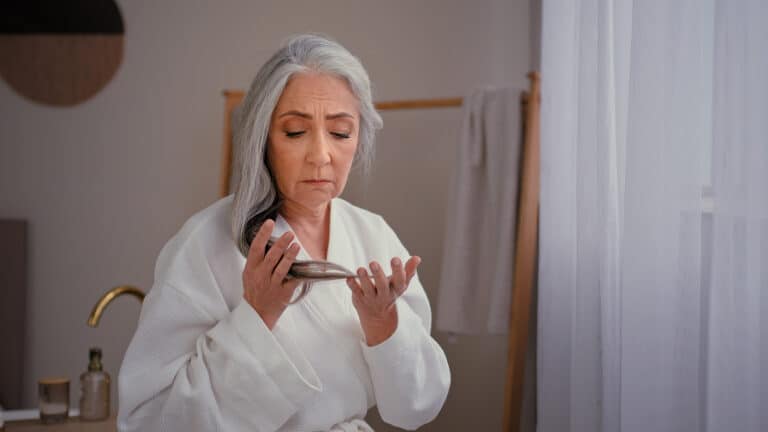It is natural for your loved one’s body to change as she gets older. It happens to everyone, even those who put thousands of dollars into their bodies trying to keep it looking 25 forever. While aging and the changes that come with it should be celebrated and honored, there are steps that you’ll need to help your loved one take to accommodate the changes that have either already occurred, are in the process of occurring, or will most likely occur.
Here are some of the most common body changes among the elderly and a few tips to help your loved one adapt to them.
- Getting shorter. Both men and women from all ethnicities will commonly lose some height as they age. Height loss occurs due to changes in the bones, muscles, and joints. It’s not uncommon for someone in their 80s to be 1-3 inches shorter than they were in their 20s. While eating a healthy diet, getting plenty of exercise, and preventing bone loss can all reduce the amount of inches lost, your loved one still may be shorter than she used to be.
If this is the case, you can help in several ways:
a. Hem those inseams. If you have a home care assistance provider who can sew, have her check the length of your loved one’s pants so they’re not dragging or presenting a tripping hazard. If she can’t sew, ask your home care assistance provider to gather up all the pants that need hemming and bring them to a professional or donate them.
b. Move items down. If your loved one has items stored too high for her to reach safely, ask your home care assistance provider to help with moving those within reach.
c. Boost her seat. If your loved one is still driving, make sure she can see safely out the window and reach the pedals without getting too close to the steering wheel and airbag. - Body fat changes. Fat tissue is more likely to increase around the midsection of your loved one as she ages. And while this area becomes fattier, the fat under the skin reduces. Both changes can be mitigated by making some changes.
a. For the fat that increases in the belly and hip areas, continue to encourage activity and a well-balanced diet that is lower in salt and fat.
b. Use extra moisturizer for your loved one’s skin to keep it supple and moist as the fat lessens. Also, remember that this skin will be more prone to damage from the sun as well as the cold so protect it with sunscreen in the summer and mittens in the winter. - Stiffness and less flexibility. Because of increased fat deposits and less use, some muscles and joints will become more stiff and painful, making getting around more difficult.
a. Help your loved one to keep moving and active by having planned physical activity either on her own or with her home care assistance provider. Staying active will help reduce the stiffness and soreness that often occurs with age.
Your loved one cannot avoid some of these changes but having a healthy lifestyle will help lessen many of them.
If you or an aging loved one need home care assistance in Folsom, CA, contact A Better living Home Care today (916) 514-7006
Owner at A Better Living Home Care
I started A Better Living Home Care Agency after seeing the impersonal and inconsistent service of large home care companies and franchises in the Greater Sacramento Area. I know, because I once worked for one. I left to put the “personal” back into home care.
Latest posts by Jay Bloodsworth (see all)
- Helping Seniors Reduce Health Anxiety - April 18, 2025
- Why Should Seniors Consider Adding Soy to Their Diets? - April 7, 2025
- Four Ways to Celebrate Spring With Your Homebound Elderly Loved One - April 2, 2025


